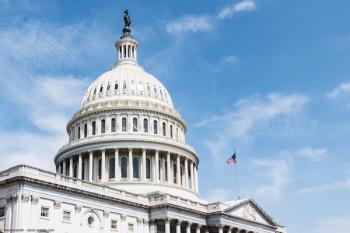
Congressional retirements promise to make waves
"No matter the most accurate interpretation of the current spate of retirements, the volume of vacancies promises to alter the political calculus in Washington," writes the AACU's Brian Henderson.
Based on a partnership with Urology Times, articles from the American Association of Clinical Urologists (AACU) provide updates on legislative processes and issues affecting urologists. We welcome your comments and suggestions. Contact the AACU government affairs office at 847-517-1050 or info@aacuweb.org for more information.
As the 2018 midterms approach, a growing list of senators and representatives have announced their intentions not to run for re-election. Altogether, the number of U.S. lawmakers vacating their seats in 2018 has reached 51. While some of these individuals will be seeking a new office, a surprising number have opted to retire from public office outright.
The Senate and House are losing a number of long-serving members whose institutional guidance and leadership will be sorely missed as Congress attempts to extract itself from the malaise it currently finds itself in.
Twenty-four of these retirements and resignations reside within the Republican caucus, a historically high number, which rivals the number of retirements experienced during the Nixon and Bush presidencies, according to
Also from the AACU:
A number of these seats have opened due to scandal-related resignation, with sexual misconduct as the prevailing cause. This alone, however, is not enough to explain the discrepancy. Observers have speculated that frustration over a dearth of legislative achievements has spurred the wave of retirements. Others see a controversial president and the looming prospect of bitter re-election battles as the predominant cause. The truth most likely lies somewhere in between, combined with a dose of exasperation over the White House’s seemingly mercurial disposition.
No matter the most accurate interpretation of the current spate of retirements, the volume of vacancies promises to alter the political calculus in Washington. Despite the persistence of anti-establishment backlash among U.S. voters, incumbents continue to enjoy substantial performance advantages year over year. Combined with midterm elections that are historically unfavorable to the governing party, the wave of open seats bodes poorly for a Republican majority that is already operating on razor thin margins.
Repeated attempts to repeal the Affordable Care Act demonstrated the fragility of the Republicans’ governing coalition in the status quo. The loss of key leadership and the prospect of Democratic gains in both houses of Congress increasingly threaten what has been a tenuous governing position to date.
Within this environment, House Speaker Paul Ryan (R-WI) has expressed wishes to move ahead with major entitlement reforms. Reform of Medicare and Medicaid in particular has been one of Ryan’s longstanding goals, with funding cuts a nearly certain feature of his ambitions.
Read:
The chances of any entitlement reforms originating in the House passing the muster of the Senate, however, seem slim. With a margin that has shrunk even further in the wake of Democrat Doug Jones’ Senate election in Alabama, McConnell has signaled that any such effort would be doomed to fail.
With the 2018 legislative agenda unclear as of yet and partisan infighting seemingly inevitable, the fate of positive medical and health care policy reforms sought by the urology community is up in the air. One such priority, repeal of the Independent Payment Advisory Board (IPAB), made important progress in 2017. Due to Medicare spending levels potentially triggering implementation of the IPAB, lawmakers took an important step in staving off implementation and the impending access to care issues that would inevitably follow. H.R. 849, a measure designed to restore congressional oversight over Medicare, passed the House with widespread support, and awaits action.
Indeed, IPAB repeal is one of the few areas where bipartisan consensus has been reached. This, if anything, should give hope that common sense health care reforms will continue to make progress and be unhampered by the results of the midterm elections.
More from the AACU:
Newsletter
Stay current with the latest urology news and practice-changing insights — sign up now for the essential updates every urologist needs.






